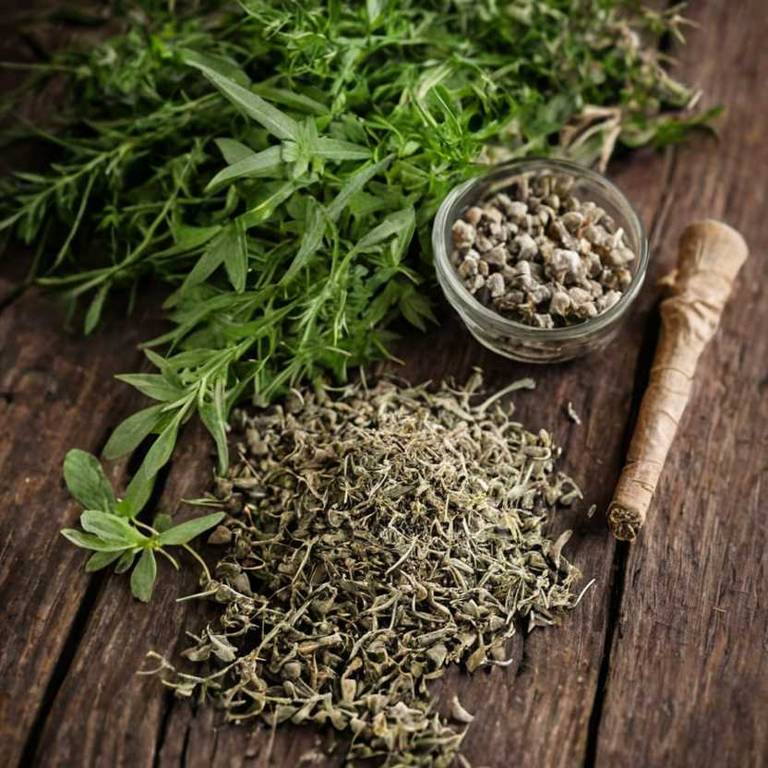By Leen Randell
Updated: Jul 20, 2024
10 Medicinal Constituents Of Peumus Boldus (Chilean Boldo)

Peumus boldus has active constituents such as alkaloids (boldine), flavonoids (quercetin and kaempferol), and terpenes (limonene and beta-pinene).
These compounds are responsible for its medicinal properties, including anti-inflammatory, antimicrobial, and hepatoprotective effects.
By reducing inflammation and protecting the liver, chilean boldo can improve digestive issues, alleviate gallbladder problems, and even lower cholesterol levels, thereby enhancing overall health and well-being.
This article explains in details the 10 best active constituents of Peumus boldus.
1. Boldine
Peumus boldus, also known as Chilean boldo, boldine is a bioactive compound extracted from the leaves of the Peumus boldus tree native to Chile.
This natural extract has been traditionally used in folk medicine for its numerous health benefits, including relieving digestive issues, reducing inflammation, and exhibiting antioxidant properties.
Boldine has also shown potential in combating various diseases, such as cancer, cardiovascular disorders, and neurodegenerative diseases, making it a promising area of research in modern medicine.
2. Gallic acid
Peumus boldus, also known as Chilean Boldo, gallic acid is a polyphenolic compound found in the leaves of this plant.
It has been traditionally used in folk medicine to treat various health issues such as digestive problems and respiratory ailments. Gallic acid exhibits antioxidant and anti-inflammatory properties, which may contribute to its potential therapeutic benefits.
Additionally, it has been shown to possess antimicrobial and antiviral activities, making it a promising compound for the development of novel pharmaceuticals.
3. Ellagic acid
Peumus boldus, also known as Chilean Boldo, ellagic acid is a bioactive compound found in its leaves.
This polyphenolic acid has been extensively studied for its potential health benefits, including antioxidant, anti-inflammatory, and antimicrobial properties. It has been shown to inhibit the growth of cancer cells and may play a role in preventing cardiovascular disease, as well as exhibiting antibacterial and antifungal activities.
Its unique combination of pharmacological effects makes it an attractive candidate for further research and development.
4. Quercetin
Peumus boldus, also known as Chilean Boldo, quercetin is a bioflavonoid compound found in the leaves of the South American plant Peumus boldus.
Quercetin has been extensively studied for its potential health benefits, including antioxidant and anti-inflammatory properties.
It has been shown to have therapeutic effects on various conditions such as asthma, allergies, and cardiovascular disease, making it a promising natural remedy.
5. Kaempferol
Peumus boldus, also known as Chilean Boldo, kaempferol is a flavonoid compound that has been isolated from the leaves of the Peumus boldus plant.
It has been found to exhibit various pharmacological properties, including antioxidant and anti-inflammatory activities.
Kaempferol has also been shown to have antiviral and antimicrobial effects, making it a promising compound for the development of new therapeutic agents.
6. Caffeic acid
Peumus boldus, also known as Chilean boldo, caffeic acid is a type of polyphenolic compound found in the leaves of the South American tree.
This antioxidant has been studied for its potential health benefits, including anti-inflammatory and antimicrobial properties.
Caffeic acid has been shown to have protective effects against oxidative stress and may help prevent chronic diseases such as cancer and cardiovascular disease.
7. Chlorogenic acid
Peumus boldus, also known as Chilean Boldo, chlorogenic acid is a bioactive compound found in its leaves.
This compound has been studied for its potential health benefits, including anti-inflammatory, antioxidant, and antimicrobial properties.
Chlorogenic acid has also been shown to have a protective effect on the liver, kidney, and cardiovascular system, making it a promising natural remedy for various diseases and conditions.
8. Ferulic acid
Peumus boldus, also known as Chilean Boldo, ferulic acid is a bioactive compound extracted from its leaves.
This flavonoid has been extensively studied for its potential health benefits, including antioxidant, anti-inflammatory, and antimicrobial properties. Ferulic acid has been shown to inhibit the growth of certain cancer cells and may have a role in preventing cardiovascular disease and neurodegenerative disorders.
It is also being investigated as a natural preservative for food and cosmetic products.
9. Vanillic acid
Peumus boldus, also known as Chilean Boldo, vanillic acid is a natural compound extracted from the leaves of this South American shrub.
It has been traditionally used in folk medicine to treat various ailments, including digestive issues and respiratory problems.
Vanillic acid exhibits antioxidant and anti-inflammatory properties, which may contribute to its potential health benefits when consumed as a dietary supplement or herbal remedy.
10. Syringic acid
Peumus boldus, also known as Chilean Boldo, Syringic acid is a phenolic compound isolated from the leaves of this plant.
It has been traditionally used in folk medicine to treat various ailments, including digestive issues and respiratory problems.
Research has shown that Syringic acid possesses antioxidant, anti-inflammatory, and antimicrobial properties, making it a potential natural remedy for several diseases.